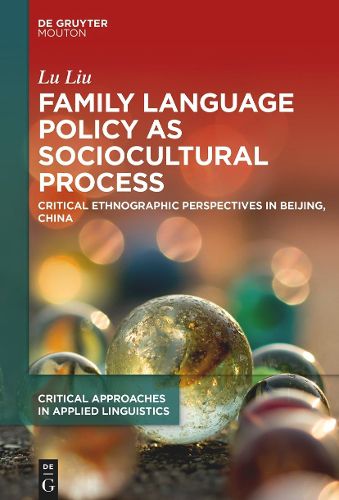Readings Newsletter
Become a Readings Member to make your shopping experience even easier.
Sign in or sign up for free!
You’re not far away from qualifying for FREE standard shipping within Australia
You’ve qualified for FREE standard shipping within Australia
The cart is loading…






This critical ethnographic study investigates the family language policies of five middle-income families in Beijing, China. Family language policy (FLP), through which parents socialize their children, serves as a barometer for wider social processes that construct linguistic statuses and hierarchies. China is a particularly salient site for investigating FLP, as it is a rapidly globalizing nation and home to one of the most widely spoken languages in the world. In its national language policy, China has embraced early acquisition of English and Mandarin-English bilingualism. This study examines how the parents' language policies inform their children's language practices in the home, what roles parents' implicit and explicit language policies play in their children's language socialization processes, and how parental language ideologies affect their children's multi-layered identity construction in a globalizing context. The study fills a gap in the critical applied linguistics scholarship on bridging multiple scales and levels - family, school, national-level policy, and macro-level globalizing forces.
$9.00 standard shipping within Australia
FREE standard shipping within Australia for orders over $100.00
Express & International shipping calculated at checkout
This critical ethnographic study investigates the family language policies of five middle-income families in Beijing, China. Family language policy (FLP), through which parents socialize their children, serves as a barometer for wider social processes that construct linguistic statuses and hierarchies. China is a particularly salient site for investigating FLP, as it is a rapidly globalizing nation and home to one of the most widely spoken languages in the world. In its national language policy, China has embraced early acquisition of English and Mandarin-English bilingualism. This study examines how the parents' language policies inform their children's language practices in the home, what roles parents' implicit and explicit language policies play in their children's language socialization processes, and how parental language ideologies affect their children's multi-layered identity construction in a globalizing context. The study fills a gap in the critical applied linguistics scholarship on bridging multiple scales and levels - family, school, national-level policy, and macro-level globalizing forces.